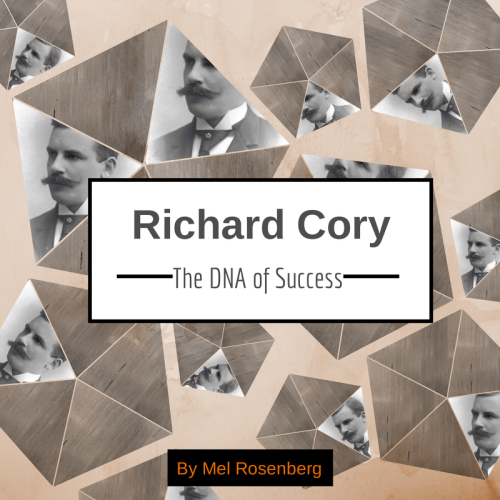
I studied the poem “Richard Cory” when I was in high school.
The author, Edwin Arlington Robinson (photo) died so many years ago (1935) that we are allowed to reproduce it here.
Whenever Richard Cory went downtown,
We people on the pavement looked at him:
He was a gentleman from sole to crown,
Clean-favored, and imperially slim.

And he was always quietly arrayed,
And he was always human when he talked;
But still he fluttered pulses when he said,
“Good-morning,” and he glittered when he walked.
And he was rich – yes, richer than a king –
And admirably schooled in every grace:
In fine, we thought that he was everything
To make us wish that we were in his place.
So on we worked, and waited for the light,
And went without the meat, and cursed the bread;
And Richard Cory, one calm summer night,
Went home and put a bullet through his head.
That is one fine poem by a fine poet, if I do say so myself. (Robinson went on to win three Pulitzer prizes, so it’s not just me). My favorite line is “So on we worked, and waited for the light.” What is yours?
I figure that Paul Simon also must have learned this poem in high school. Maybe he had great poetry teachers (I did). He wrote a famous song based on the poem called (you guessed) “Richard Cory”. Millions more people learned about the poem through the song.
I wonder whether the fictional name “Mrs. Robinson” in the subsequent film “The Graduate” is somehow connected to the real “Mrs. Emma Robinson”. That would have been real ‘poetic justice’. Remind me to ask Paul Simon the next time I see him.
“Mrs. Emma Robinson” (photo) was not the wife of Edwin, the poet. She was the wife of Edwin’s brother, Herman who was handsome and charming, yet ended up wasting his life away and dying in poverty. Emma thought that Edwin had written “Richard Cory” about his brother. I do too.

Edwin Arlington Robinson was a highly successful poet. He won three Pulitzer prizes. Furthermore, his poetry has withstood the test of time.
On the other hand, he did not lead a successful personal life. He had a weird family. His parents didn’t give him a name until he was six months old. Both brothers suffered from addiction. He had a sad childhood. He wrote sad poems. He wanted to marry Emma. That didn’t happen either.
Does one have to be miserable to become a great poet? Is a troubled childhood a recipe for success as an adult? Is it in our genes? If I knew the answer, I would tell you. If you know, please be sure to tell me.
Thank you for reading my book!
If you like it, you might also want to read other books on the DNA of Success:
Charles and Winston: the DNA of Success
http://www.ourboox.com/books/charles-and-winston-the-dna-of-success/
Read more about me and see ALL my books on Ourboox (I have many)
http://www.ourboox.com/community/drmel/
Or even better, create a book of your own!!!
Here is a tutorial to help you get started on your own voyage as an Ourboox contributor!!
http://www.ourboox.com/books/create-a-book-ourboox-video-tutorial/
And finally, you can always write me at
Published: Aug 30, 2014
Latest Revision: Sep 1, 2014
Ourboox Unique Identifier: OB-16507
Copyright © 2014








